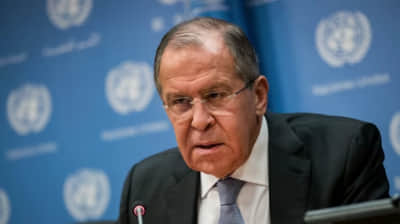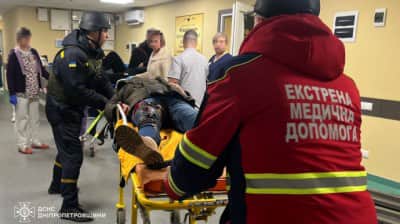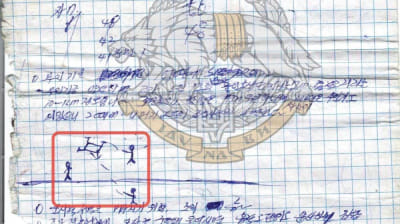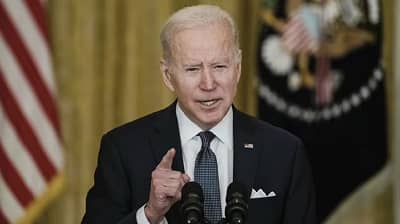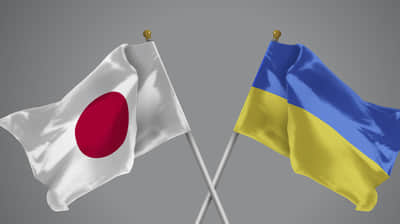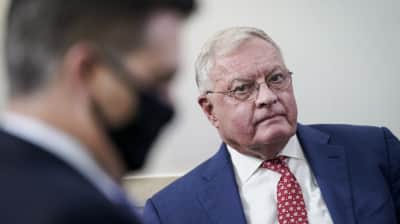"Life is worth nothing, you can be tortured or killed in a split second": Story of policeman who survived occupation of Bucha
Maksym Kozhushko is a major in the Bucha police. He is a community police officer. When the full-scale war broke out, he was at the heart of the fighting and lived through the occupation.
Now the Kyiv Oblast police officer has told us about his experience.
After graduating, Maksym worked as an operative for four years. He served in the patrol police of the city of Kyiv for about as long. Today, thanks to reforms, he works as a community officer.
"It’s similar to the patrol police, something akin to a sheriff in America. First of all, it’s about working with people, gaining the trust of the public, providing quality services, responding to inquiries. There’s also work being done on road safety – there’s a lot of emphasis on that," the major explains.

War found Maskym in the 1st police station of Bucha on 24 February. He recalls that the siren went off in the evening. Everyone was gathered up by 21:00. But still, no one suspected anything until 4:00.
Maksym remembers that when the information about the Russian invasion reached them, he personally did not believe it much. At the same time, he adds that the anticipation was not very pleasant.
"And at 4:00 in the morning, when we heard all these explosions, which were confused with fireworks, we realised that everything had begun," the policeman emphasised.
He says that in the first days he served with his colleagues in the regional department, where he also slept on tables or on the floor. Sometimes they went to shoot down helicopters and guarded administrative buildings.
Maksym could not return home. By 25 February no one could get to Hostomel [a city neighbouring Bucha – ed.].
"My house was occupied. Bucha was already on the verge, so I spent the night in the district department. Fortunately, I did not return home then. Everyone who tried to was shot on the border of Bucha and Hostomel," he says.
Maksym had to live in a hospital even before the complete occupation of Bucha. They realised that the Russians occupied the city when they noticed that the flag of Ukraine was removed. They stationed themselves in the hospital basement. They also transferred a lot of food to the building. While they could, they brought wounded there – then the Russians began to shoot the ambulances.
The outbreak of war on 24 February found Maksym in the 1st police station in Bucha. He recalls that a siren went off in the evening. Everyone had gathered together by 21:00. But still, no one suspected anything until 04:00.
Maksym remembers that when the news of the Russian invasion reached them, he personally could hardly believe it. At the same time, he adds that the anticipation was not very pleasant.
"And at 04:00 in the morning, when we heard all these explosions, which people confused with fireworks, we realised that it had all started," he emphasised.
He says that in the early days, he served with his colleagues at the district police station, where he also slept - on desks or on the floor. Sometimes they went to shoot down helicopters or guarded administrative buildings.
Maksym couldn’t go home. By 25 February, no one could get to Hostomel [a city neighbouring Bucha – ed.].
"My house was occupied. Bucha was already on the verge, so I spent the night in the district police station. It was lucky I didn’t go back home then. Everyone who tried to was shot on the border of Bucha and Hostomel," he says.
Maksym was forced to live in a hospital, even before the complete occupation of Bucha. He and his colleagues realised that the Russians had occupied the city when they noticed that the Ukrainian flag had been taken down. They stationed themselves in the hospital basement. They also moved plenty of food into the building. While they could, they would bring wounded people there – then the Russians began to fire on ambulances.
Maksym says the place was not the safest, but it was a permanent shelter. The Russians were bombarding the hospital with artillery. In addition, living under occupation was dangerous, so their police uniform had to be temporarily hidden.
"You had to act and think rationally, to help everyone without superfluous heroics – both civilians and the Armed Forces of Ukraine. We hid our weapons and documents in a room. After a while the Russians turned up, but they didn’t realise who we were. We used to distribute humanitarian aid," says the major.
Maksym thinks that the Russians may have come to see their own troops who were also being treated at the hospital. Then they came again searching for them, but found nothing. After the second time this happened, they decided to use the evacuation corridor.
Local Ukrainian police continued to help: they processed documents, took in the wounded and, when necessary, carried out the dead. They also passed information on to the Armed Forces and helped Ukraine. After all, there was no other way.
"Occupation is like being on an operating table. You don't know if you'll wake up or not. Your life is worthless, there are no rights, you can be killed or tortured in a split second. Just because you were in the wrong place at the wrong time. Many people were shot. They were just driving in their car, or there was a Russian sniper, or a Russian just went bonkers and shot everyone," Maksym says.
Ukrainska Pravda is the place where you will find the most up-to-date information about everything related to the war in Ukraine. Follow us on Twitter, support us, or become our patron!
